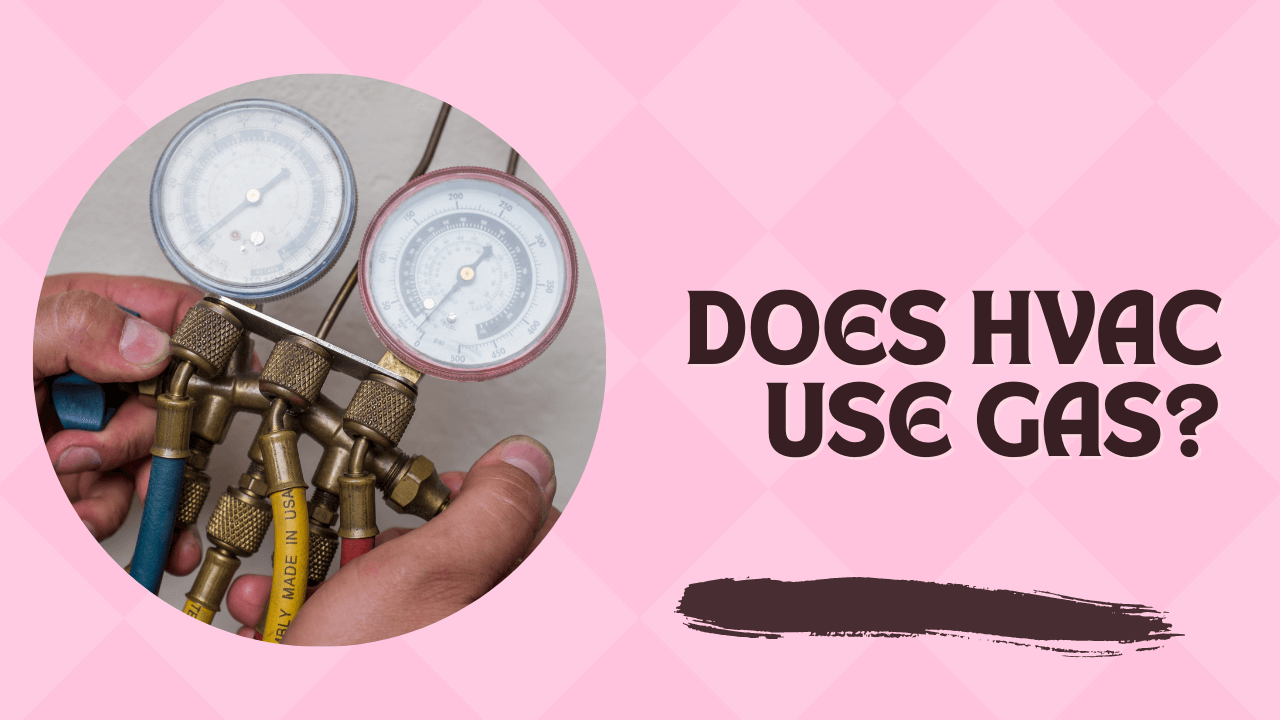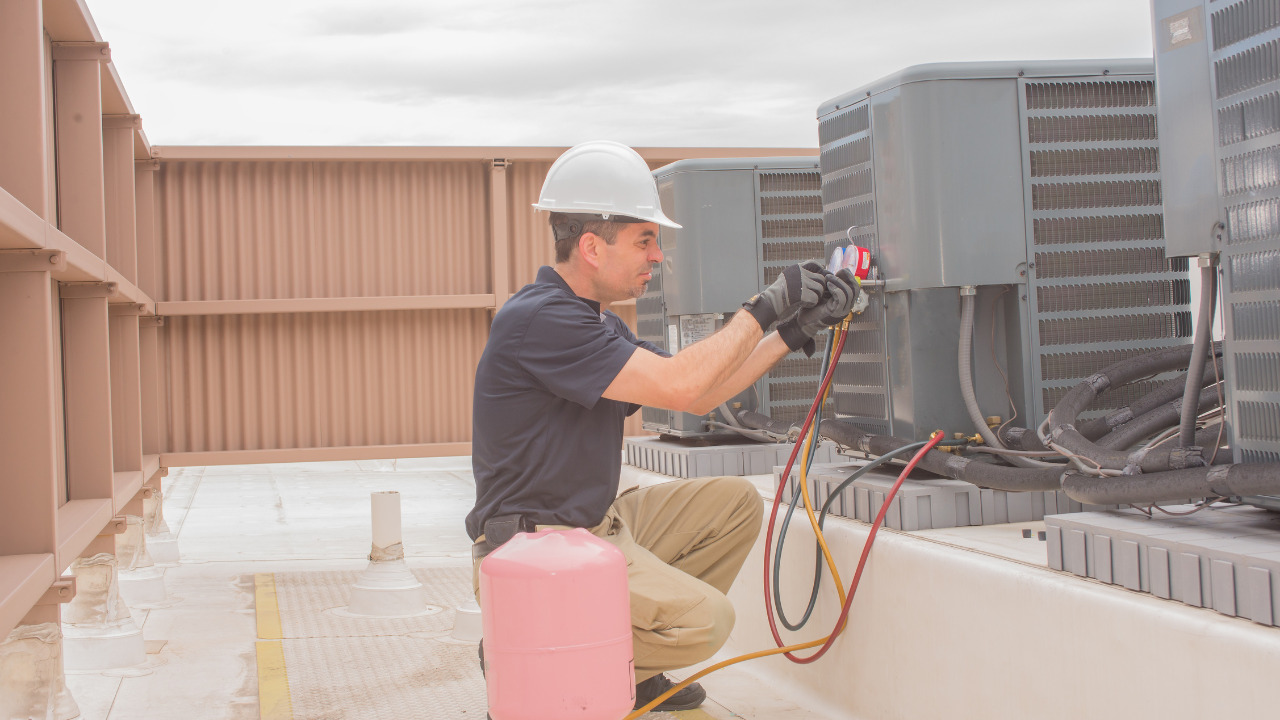If you want to know, does the HVAC use gas? You are at the right spot. You might be having trouble with your air conditioner. Moreover, you don’t know what to say to the technician. Maybe you’re unsure why your utility bill is so high and want to know if your air conditioner is to blame for a significant portion.
It’s not uncommon to have questions about how your air conditioning or other household systems work for whatever reason. If you have any concerns regarding your system, you should always seek the advice of a qualified HVAC specialist.
Remember that every question is valid, and you should focus on things such as natural gas rates. Confirm whether you can pick your supplier depending on the local laws enforced in your state. You can compare the natural gas rates online using comparison sites and get the best deal.
The reason is that dealing with the HVAC system is impossible for an average individual without background knowledge.
Table of Contents
What Does HVAC Use?
Central air conditioning systems burn fuel and come in various brands, models, and types. Each model has its own set of features and ratings for energy efficiency. All central air conditioners have one thing in common: they all run on electricity rather than gas.
As we all know that electricity comes from our local power provider. Of course. If you’re concerned about your family’s carbon footprint, you should look into your local utility company’s power source.
Before knowing about the type of fuel used in the HVAC system, you have to know the type of your system. HVAC systems are available in different types and models. Let’s talk about a few systems in detail for better consideration:
Radiator System
A boiler is the heating system used to build hot water or steam for hydronic heating systems, heat-free radiation, or steam radiators. Steam boilers are more complicated than hot water boilers and contain unique features.
It is because of pressure gauges, valves blowing off, and automatic inputs. Hot water feeds into baseboards or cast iron radiators installed on the walls of the tube. Fine plates increase the heat dissipation surface area to improve the device’s efficiency.
The primary fuel sources for the radiator system are natural gas, Propane, and electricity. Moreover, you can also fuel this system with oil. Make sure to choose the fueling option according to your needs and budget.
Steam Radiant System Or Boiler
Steam radiators are primarily used in the past for heating the areas. However, a few homeowners still prefer using this system, that’s the main component of the central heating system. They’re distinguished by cast-iron vertical radiators that radiate heat through steam. One-pipe and two-pipe steam systems are the two types of steam systems.
In one-pipe systems, water and steam travel in the same pipe but in opposing directions. Steam runs via one pipe, and water condensate returns through another set of pipes in a two-pipe system. Steam piping and radiator units use to distribute heat.
The primary fuel sources for this system are Propane, oil, electricity, and natural gas.
The boiler is the main component of a central heating system. They come in many sizes – delivering various amounts of heat energy, fuel types, and energy ratings.
Air Conditioning Systems
Air conditioners use chemicals to change from a gas to a liquid readily and again. These chemicals transfer heat from a home’s interior to the outdoors.
Moreover, refrigerators and air conditioners both work in the same pattern. An air conditioner cools a room, a complete house, or a business instead of simply the small, insulated space inside a refrigerator.
Modern Air Conditioning System With A Heat Pump
A heat pump is an air conditioner with a valve to transition between Ac and a heater. When the valve is turned one way, the heat pump operates like an air conditioner. When you turn it in another way, the liquid inside the heat pump reverses flow, and the heat pump acts as a heater. Doesn’t it sound great? Of course, yes!
Ideally, you can use the heat pumps according to your home’s size and an already installed air conditioning system. However, this pump’s operational and installation costs will also vary accordingly. Make sure to keep the system small for a precise or small budget.
During the summer, a small air conditioner will not cool the space to a tolerable temperature. Unfortunately, oversized air conditioners consume more energy and keep the air full of humidity. So, choose a heat pump for your system wisely.
Forced Air Systems
It is one of the most prevalent home heating and cooling systems. Gas, oil, or wood-fired equipment heats air and circulates it throughout a building as part of a heating system. Registers transfer air from the furnace through ducting and into the room.
Ideally, you can use the duct system to cool the air efficiently. Indeed, this system offers higher efficiency than a boiler or radiator system.
The primary fuel sources for this type of system are Propane, electricity, and natural gas.
How To Manage The HVAC Fuel Cost In The Summer?
Air conditioning is a must-have for all, especially in the summer season. While you may not be able to live without it, there are ways to reduce your dependency on electricity-powered air conditioning. Scheduling routine AC repair is one of the most effective steps you can take to save more cost.
Ensure that you replace your air filter according to the technician’s instructions. When the filter becomes clogged, the air conditioner must work harder to blow air through it. That’s why it’s better to clean the air ducts on time to save fuel costs.
Use a ceiling fan to enhance the relaxing vibe in the room. Using both a fan and your HVAC system, you can boost your thermostat temperature by four degrees without sacrificing comfort. Your ceiling fan will keep you cool while reducing costs.
Even if you took precautions to reduce your energy costs during the summer, you might be disappointed when receiving your utility bill. As a result, consider investing in a new system in case your current one has served you for more than ten years.
An upgraded system will consume half the energy your older system used and save you a lot on energy costs.
Alternatively, consider getting a solar-powered air conditioner. Most modern HVAC system manufacturing companies offer intelligent and environment-friendly AC systems. So, you can also go for a solar-powered AC system only if you can afford it.
How To Manage The HVAC Fuel Cost In The Winter
During the winter, there are different steps you can take to save on heating that might not cost you a lot. For one, you can add more clothing during winter to avoid cranking up the heat. For instance, instead of wearing a short-sleeved shirt, consider adding a layer of a sweater with more material.
Consider closing their doors if you live in a home with different rooms you hardly ever use. In addition, find vents that are in the rooms you don’t use and seal them. Keep your windows closed tightly, as heat might escape through the cracks in the window.
It might save some heating costs if you love to cook or bake. The heat from your stove or oven will warm up your kitchen. So, once you are done baking, open the door to allow warm air to escape into the adjacent rooms.





